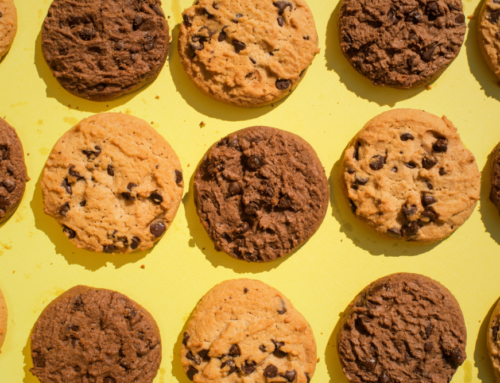Last night I went to hear Leanne Brown, author of Good and Cheap: How to Eat Well on $4/Day, speak at Town Hall, in conversation with Seattle-based journalist Rebekah Denn (two-time James Beard Award-winner for food writing). [This makes two nights and a row where I really wanted to just go home after work but was SO glad that I did not!]
In a nutshell: When Brown learned that more than 46 million Americans are on SNAP and other food assistance programs, she responded by creating the popular Good and Cheap cookbook…initially as her thesis project when she was earning her Master’s Degree in Food Studies (think food policy) from NYU. “I wanted to make something that would have a life beyond [NYU]…I wanted it to count.”
In April 2014, post-graduation, Brown wanted to get her thesis-slash-book into the hands of people who needed it, so she put it on her website as a free PDF download. But the concern was some of the people she was trying to help don’t have internet access. So she started a Kickstarter campaign with the goal of raising $10,000 to pay for 500 books. She ended up raising $144,000, which paid for 40,000 books!
This beautifully put-together book can teach you how to make healthy, fast, and delicious meals on $4 per day, which is the average food stamp budget. “$4 a day is not something I would encourage, but for 46 million Americans, it’s a reality,” Brown said. “There are millions and millions and millions of people who could use this information.”
Brown said she hears from readers every day, and that many people tell her stories that they won’t tell anyone else…but she wishes they would tell others. “They’re really important human stories, and I’m touched by it.”
She said that most people on food stamps only receive benefits for a few months. “I hate that [being on food stamps] is a secret shame for people,” she said. “It should be like, ‘I got through this, I’m super badass.'”
Good and Cheap isn’t just for people on food stamps (“If you can spend more than $4 per day, great,” Brown said.) There are lots of tips for shopping smartly and eating well, and the recipes are simple, practical and tasty (there’s even a section called “Things on Toast”).
Denn said she feels the book works on three levels, one being social justice, but the other two being that “The recipes actually work” and “If you’re not a confident cook, it helps you figure out how to improvise.”
“A lot of people talk about fear when they first start cooking,” Brown said, and that fear can be greater when someone has very little money to spend on food. Imagine that you are a novice cook. You go to the store and spend all of your money on ingredients. When you get home, you don’t have anything that you can eat immediately…you have to cook it. What if it doesn’t taste good? What if you burn it?
“To become a good cook, you just need to experience it every day,” Brown said. “That’s the dream for me, to give people a thing that makes them feel like they can do it for themselves.”
Brown said she aims to support foods that are the best value, but not necessarily the cheapest, “but I’m not going to begrudge the person who buys the $1 eggs because if they bought the $4-5 eggs that would be all they have to eat that week.”
Those self-published books are being distributed through a variety of organizations that serve low-income people, and a second edition has been published by Workman Publishers. You can still download a free PDF of the cookbook on her website, but if you buy a book, a copy will be given to someone in need.
Brown was a wonderful speaker, and she is changing lives every day with her book. That’s certainly more than most [maybe all] people can say about their graduate school thesis.
Update: Here’s a really nice review of Brown’s talk from The Seattle Review of Books. It includes some interesting details about how her thesis became Good and Cheap that I took notes on but didn’t end up including in my post, in case you are curious.








